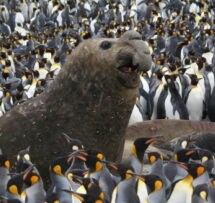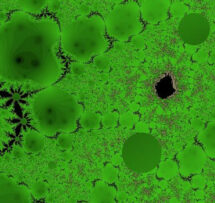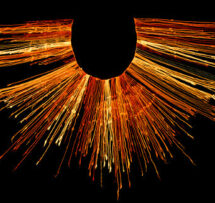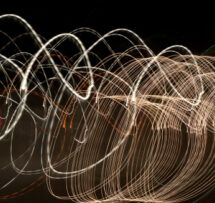Monster black holes at the edge of the universe

How large are the largest black holes? How did they get so big? Can two black holes merge to make a bigger black hole?
Over the last 10 years or so, astronomers have accumulated convincing evidence that black holes are not only "real" and exist, but are ubiquitous in nature, coming in a broad range of sizes. Large black holes are found to reside at the center of every galaxy, and very massive ones, several billion times heavier than our own Sun, are known to have formed already within a mere 700 million years after the Big Bang.
This special session of Science & Cocktails Johannesburg will be guided by astrophysicist
Zoltán Haiman, visiting from Columbia University. Prof. Haiman will take us on a journey back to the earliest days of the Universe, to the time when the first stars after the big bang were born. He will discuss when these stars died and what their fate was, and speculate about how the most massive known black holes may have formed and evolved throughout the history of the cosmos.
Event organised in conjunction with the School of Interdisciplinary Research at the University of South Africa.
Image: Sea Shell Ceiling (Chris Martino/Flickr).

Zoltán Haiman
Monster black holes at the edge of the universe
How large are the largest black holes? How did they get so big? Can two black holes merge to make a bigger black hole?
Talk by
Zoltán Haiman
Zoltán Haiman is professor within the Department of Astronomy at Columbia University in New York City, USA. His research interests include the formation of structure in the early Universe, the study of large scale structures using lensing,
and gravitational wave astronomy. Among other distinctions, he was chosen as one of Popular Science Magazine's Brilliant 10 young scientists in 2002 and received the New York Academy of Sciences Blavatnik Award in 2010. He was recently awarded a Simons Fellowship in Theoretical Physics by the Simons Foundation.
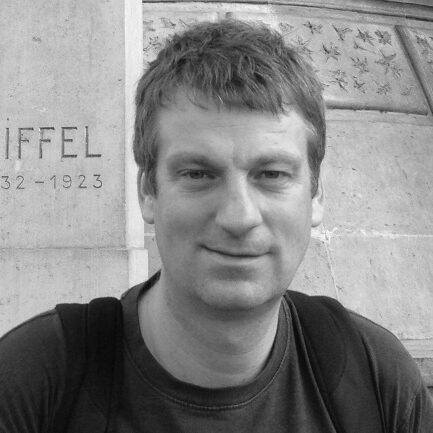
Music by
Hlumelo Ledwaba
Hlumelo Ledwaba is a Johannesburg based young vocalist with a passion
for jazz. Through her training in both classical and jazz art forms, Hlumelo aims to add a different dimension to various vocal jazz forms both traditional and contempary. She has trained with both Edith Klug and Hannah Foster, both
accomplished vocalists in their own right. The repertoire of this
performance, where she shares the stage with fellow students and musicians,
will incorporate songs from Hlumelo’s final year recital at the University of the Witwatersrand, as well as works that inspire her on her musical journey










